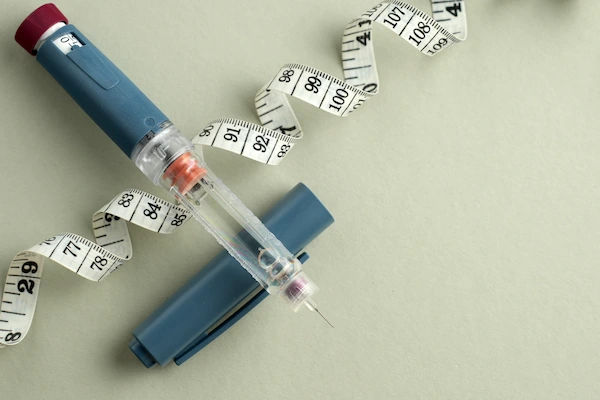Foods That May Help Control Sugar Levels
Discover foods that may help control sugar levels naturally. Learn how a balanced diet with the right choices can support better blood sugar management.

Written by Dr. Rohinipriyanka Pondugula
Reviewed by Dr. Dhankecha Mayank Dineshbhai MBBS
Last updated on 13th Jan, 2026

Introduction
Managing blood sugar levels is essential for overall health, especially for people with diabetes or those at risk of developing it. While medication and regular check-ups are important, the food you eat plays a crucial role in keeping your sugar levels stable.
In this article, we’ll explore some of the best foods that can help control blood sugar naturally, along with simple dietary tips to maintain a healthy lifestyle.
Why Is Controlling Blood Sugar Important?
When your blood sugar levels are too high (hyperglycaemia) or too low (hypoglycaemia), it can lead to various health problems, including:
Fatigue and dizziness
Frequent thirst and urination
Increased risk of heart disease
Nerve damage over time
By choosing the right foods, you can help your body regulate sugar levels more effectively and reduce these risks.
Consult a Nutritionist for the best advice
Best Foods to Help Control Sugar Levels
Here are some nutrient-rich foods that can help keep your blood sugar in check:
1. Leafy Green Vegetables
Vegetables like spinach, kale, and collard greens are low in calories and carbohydrates but rich in fibre, vitamins, and minerals. fibre slows down digestion, preventing sudden spikes in blood sugar.
2. Whole Grains
Unlike refined grains (white bread, white rice), whole grains like oats, quinoa, and brown rice contain fibre, which helps stabilize blood sugar levels.
3. Nuts and Seeds
Almonds, walnuts, chia seeds, and flaxseeds are packed with healthy fats, protein, and fibre. They help slow down sugar absorption and keep you full for longer.
4. Legumes (Beans, Lentils, Chickpeas)
Beans and lentils are excellent sources of plant-based protein and fibre, which help regulate blood sugar. They also have a low glycaemic index (GI), meaning they release sugar slowly into the bloodstream.
5. Berries
Strawberries, blueberries, and raspberries are rich in antioxidants and fibre, making them a great low-sugar fruit option for people watching their glucose levels.
6. Fatty Fish
Salmon, mackerel, and sardines are high in omega-3 fatty acids, which improve insulin sensitivity and reduce inflammation.
7. Greek Yoghurt (Unsweetened)
High in protein and probiotics, Greek yoghurt helps control blood sugar and supports gut health. Choose plain, unsweetened varieties to avoid added sugars.
8. Cinnamon
This spice has been shown to improve insulin sensitivity and lower blood sugar levels. Sprinkle it on oatmeal, yoghurt, or smoothies for added benefits.
9. Apple Cider Vinegar
Some studies suggest that apple cider vinegar can improve insulin function and lower blood sugar after meals. Try mixing a teaspoon in water before meals (consult a doctor if you have acid reflux).
10. Avocados
Rich in healthy fats and fibre, avocados help slow digestion and prevent blood sugar spikes.
Foods to Avoid or Limit
While some foods help control sugar levels, others can cause spikes. Try to reduce or avoid:
Sugary drinks (soda, fruit juices)
White bread, pasta, and rice
Processed snacks (chips, cookies)
Fried and high-fat foods
Sweetened cereals and desserts
Lifestyle Tips for Better Blood Sugar Control
In addition to eating the right foods, these habits can help maintain stable sugar levels:
Eat Small, Frequent Meals – Instead of three large meals, opt for smaller portions spread throughout the day to prevent sugar spikes.
Stay Hydrated – Drinking enough water helps flush out excess sugar through urine.
Exercise Regularly – Physical activity improves insulin sensitivity and helps muscles use glucose effectively.
Monitor Your Levels – If you have diabetes, check your blood sugar regularly as advised by your doctor.
Get Enough Sleep – Poor sleep can affect insulin sensitivity and increase sugar cravings.
When to See a Doctor?
If you experience frequent high or low blood sugar levels, excessive thirst, unexplained weight loss, or fatigue, it’s best to consult a doctor. Early detection and management can prevent complications.
Final Thoughts
Choosing the right foods and maintaining a balanced lifestyle can make a big difference in managing blood sugar levels. By incorporating fibre-rich, low-GI foods and avoiding sugary, processed items, you can take control of your health naturally.
Remember, small changes today can lead to long-term benefits. Stay mindful of what you eat, stay active, and consult your doctor for personalised advice.
Consult a Nutritionist for the best advice
Consult a Nutritionist for the best advice
Dr. Sasikamalam
General Practitioner
1 Years • MBBS
COIMBATORE
Apollo Sugar Clinic Coimbatore, COIMBATORE
Mrs Sneha P V
Nutritionist
10 Years • Master of science in Food and Nutrition
Bengaluru
Apollo Clinic, Sarjapur Road, Bengaluru

Mr Aritra Khan
Dietician
16 Years • PG Diploma in Clinical Nutrition,Doctorate in Public Health & Community Nutrition, Post Doctorate Fellowship in Functional Medicine & Critical Care Nutrition
Kolkata
Samaritan Clinic, Kolkata
(250+ Patients)
Ms. Bhavana Shetty
Dietician
7 Years • DDHN & Masters in Clinical Nutrition & Dietetics
Bangalore
Apollo Sugar Clinic, Seetha circle bangalore, Bangalore
Dr Sumanth R
General Physician
2 Years • MBBS
Bengaluru
PRESTIGE SHANTHINIKETAN - SOCIETY CLINIC, Bengaluru

